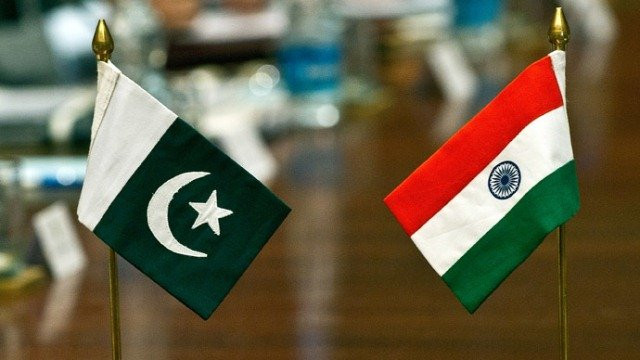Pakistan-India ties: Call for collective efforts to achieving peace, prosperity
Say Pakistani identity and nationalism should be promoted the way India has.

For peaceful coexistence, she stressed people-to-people contact at a lower level and a need to understand and realise that commoners from either side shared similar frustrations, challenges and social issues. PHOTO: AFP
Pakistan and India can benefit from walking together and if they continue along this path, they will come closer to achieving their ultimate goals of peace and harmony.
This was the crux of a panel discussion, “Sharing hopes for peaceful co-existence” on Thursday.
By working together, the two neighbours have the potential to become an even stronger force in the global community, they said.
Aghaz-e-Dosti, an initiative for peace and friendship, also launched a calendar titled Indo-Pak peace calendar, featuring paintings of students from India and Pakistan as well as some personalities striving towards the same goals. “It depicts hopes shared by people from either side of the border,” said Asad Shaikh of Aghaz-e-Dosti.
The panelists comprised Marvi Sirmed, a rights activist and Awami National Party’s youth organisation president Khushal Khattak.
“We are hostage to state actions and the states’ relations among themselves,” said Sirmed, alluding to disconnect of narrative between the state and the civil society.
While the two countries have shared a politically hostile history, she observed, the state narrative in India has undergone changes through time, intensifying in Indian Prime Minister Narendra Modi’s regime when relationship between the two grew tense.
Khattak, who is an alumna of the Jawaharlal Nehru University in New Delhi, enlightened the audience with his experience as a student in India from 2007 to 2009, during which the 2008 Mumbai attacks also took place.
He said that visa restrictions and other state-imposed limitations never had a problem for him. “Teachers and students would often go out of their way to make me comfortable and feel at home,” he said.
According to Khattak, he did not find Lahore and Delhi culturally much different.
He said Pashtun nationalist leaders Bacha Khan and Wali Khan had garnered more respect in India than they had in Pakistan.
Sirmed said that while there was a dearth of nationalism in Pakistan, the one in India was a bit different from the traditional definition.
“In Pakistan, we don’t have nationalism which is very different from the idea of Indian secularism. Our state has compromised our Pakistani identity and we’ve kept our nationalism at a back seat,” she said.
On the other hand, Indians have owned their nationality following the colonial era. This has enabled them to strengthen their institutions, corporate sector and non-government organisations and they excel at that, she added.
For peaceful coexistence, she stressed people-to-people contact at a lower level and a need to understand and realise that commoners from either side shared similar frustrations, challenges and social issues.
Published in The Express Tribune, January 16th, 2015.



















COMMENTS
Comments are moderated and generally will be posted if they are on-topic and not abusive.
For more information, please see our Comments FAQ